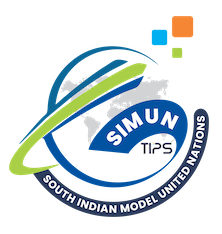SIMUNCommittees

UNHRC
Assigned to promote and protect human rights around the world, The United Nations Human Rights Council has been addressing human rights violations since 2006. The debate on how to combat these violations is heated but indispensable in ensuring a kinder future.

UNESCO
Aimed at promoting world peace through international cooperation in education, arts, sciences and culture, The United Nations Educational, Scientific and Cultural Organization is a well-known specialized committee. Sharing intimate cultures globally forges strong international bonds.

WHO
Responsible for international public health, the World Health Organization is dedicated to serving the vulnerable. Setting higher health standards and advocating for universal health care requires great discourse – one which is essential to the progression of humanity.

UNEP
Coordinating responses to environmental issues, the United Nations Environment Program aims to enable nations to improve their quality of life without compromising that of future generations. Ensuring our future is sustainable is vital to bringing all nations better health, better resources, and more security in our continued survival.
SIMUNCommittees

ILO
Here to advance social and economic justice by setting international labour standards, the International Labour Organization is the oldest specialized agency of the UN. The rights of the working class determine the standard of living – it is imperative to deliberate on them.

FAO
On the mission to solve world hunger, the Food and Agriculture Organization leads international efforts to improve nutrition and food security. Food is an essential part of life and we should all strive to provide the most basic yet profound compassion to others by ensuring our community doesn’t go hungry.

UNDP
Dedicated to human development and global economic welfare, the United Nations Development Program has been working hard to reduce inequalities and promote sustainable development across the world. It is important to eradicate poverty as one of the pressing issues keeping us from a truly advanced future.

DISEC
Committed to the goal of a world free of nuclear weapons, the Disarmament and Security Council establishes general principles in the regulation of armaments. The existence of such weapons allows unspeakable violence to occur and our control over these tragedies must be enforced.

CCPCJ
The primary organ that guides the activities of the United Nations in the fields of crime prevention and criminal justice, The Commission on Crime Prevention and Criminal Justice is a functional commission of ECOSOC. It is vital to ponder over the ongoing debate of humane treatment in criminal justice.
SIMUNCommittees

IP
Dedicated to the promotion and protection of press freedom and the improvement of journalism practices, the International Press corps provides unbiased journalism on the activities of the committees. The journalists hold governments responsible and advocate for the common man in political environments.

SOCHUM
Advocating for human rights, humanitarian affairs and social matters, the Social, Humanitarian and Cultural Committee is one of the six principal organs of the UN. The discussion of pressing social issues and the action required to combat them is one we all must partake in.

SPECPOL
Tasked with a wide range of political issues focused around decolonization, peacekeeping efforts, and peaceful uses of outer space, the Special Political and Decolonization Committee is one of the 6 principal organs of the UN. The mitigation of subsequent crises caused by colonialism continues to this day.

ECOSOC
The central forum for discussing international economic and social issues and formulating policy recommendations, the United Nations Economic and Social Council is one of the six principal organs of the UN. The discussion of issues in ECOSOC plays an essential role in global action and policymaking.
SIMUNCommittees

UNODC
To combat drugs, organized crime, corruption and terrorism, the United Nations Office on Drugs and Crime promotes sustainable peace and well-being. The human lives lost to these issues every day are overwhelming and it should be our unified mission to resolve the conflict that incites this crime.

UNCRPD
Intended to protect the rights and dignity of persons with disabilities, the Convention on the Rights of Persons with Disabilities is an international human rights treaty of the United Nations. Everyone deserves to have access to the privilege of being able to live life without bodily restrictions – physical or psychological.

UNSC
Charged with ensuring international peace and security, the United Nations Security Council is one of the six principal organs of the UN. It is important to investigate issues threatening international peace as they begin to preserve human lives lost in conflict.
NATO
A security alliance of 30 countries from North America and Europe, the North Atlantic Treaty Organization safeguards the Allies' freedom and security by political and military means. The discussion of current international conflicts that affect allied countries involves difficult considerations in a political minefield.
SIMUNCommittees

WHC
Pioneering the international community's efforts to protect and preserve, the World Heritage Committee selects the sites to be listed as UNESCO World Heritage Sites. History is an educational tool that can easily be taken away unless preserved, thus making it important for us to make the decisions in our hands.

